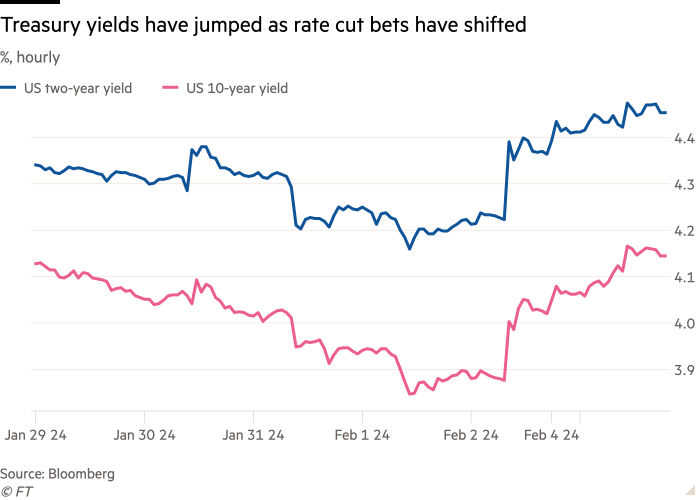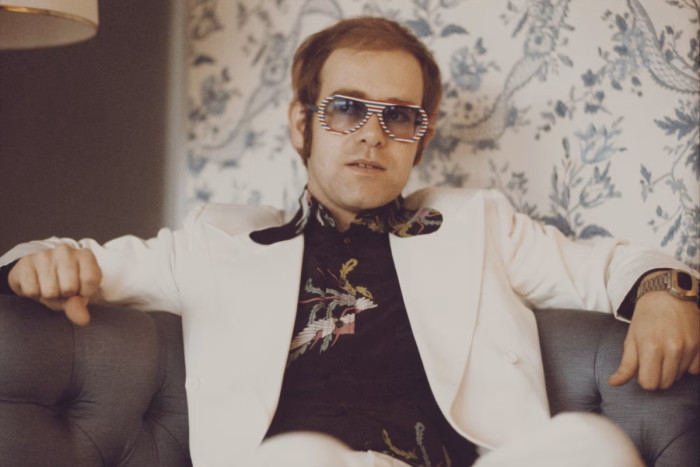Stay informed with free updates
Simply sign up to the World myFT Digest — delivered directly to your inbox.
This article is an on-site version of our FirstFT newsletter. Sign up to our Asia, Europe/Africa or Americas edition to get it sent straight to your inbox every weekday morning
Good morning.
We start today with an exclusive story from China and its push to become self-sufficient in chip production.
The country’s biggest chipmaker, SMIC, has put together new semiconductor production lines in Shanghai, according to two people familiar with the move, to mass produce the chips designed by technology giant Huawei.
President Xi Jinping has made self sufficiency in semiconductor production a goal since US President Joe Biden’s administration restricted exports of advanced chipmaking equipment to China in October.
According to two people with knowledge of the plans, SMIC is aiming to use its existing stock of US and Dutch-made equipment to produce more miniaturised 5-nanometre chips which are still behind the west’s most advanced semiconductors, but their production indicates that China is making gradual progress in the production of the advanced technology. Read Qianer Liu’s exclusive story.
-
More China business news: Chinese equities staged a rebound today as state funds vowed to step up share purchases, spurring investor hopes that Beijing might be ready to offer more support to put a floor under months of sliding prices.
Here’s what else I’m keeping tabs on today:
-
Results: Eli Lilly, the maker of weight loss drug Mounjaro, reports this morning alongside KKR, Spotify, GE Healthcare and Hertz. Amgen, Gilead Sciences, Chipotle, Ford and Snap are reporting after the bell.
-
Monetary policy: Cleveland Fed president Loretta Mester will deliver a speech at the Ohio Bankers League economic summit. Minneapolis Fed president Neel Kashkari, Boston Fed president Susan Collins and Philadelphia Fed president Patrick Harker will also deliver speeches.
-
Antony Blinken: The US secretary of state is in Cairo today as he negotiates with regional players for a ceasefire in the Israel-Hamas war.
-
Congress: The head of the Federal Aviation Administration Mike Whitaker will face questions from lawmakers about the agency’s oversight of Boeing in the wake of a 737 MAX 9 mid-air emergency.
Five more top stories
1. Exclusive: New York Community Bancorp’s chief risk officer left shortly before it reported larger than expected losses from real estate lending that hammered the bank’s stock. Nicholas Munson had been NYCB’s head of risk since 2019 but left the bank early this year, according to people familiar with the matter and his LinkedIn page, which was recently deleted. More details on his exit here.
-
Latin American banking: David Vélez, chief executive of Brazilian lender Nubank, has laid out ambitions to become Latin America’s biggest financial services group in an interview with the Financial Times.
2. Antony Blinken pushed for an “enduring” Gaza peace deal in Saudi Arabia yesterday during talks with Crown Prince Mohammed bin Salman. The US secretary of state will next visit Egypt, Qatar, Israel and the West Bank as he tries to advance an end to the war and secure the release of Israeli hostages held in Gaza. Read the full story.
-
Anti-Israel boycotts: McDonald’s said a drop in demand at its restaurants in the Middle East and predominantly Muslim countries had hurt its sales.
-
Middle East tensions: A drone attack on a military base housing US troops in Syria killed at least six allied Syrian fighters in the early hours of Monday morning.
3. US private equity firms are rushing to take advantage of lower borrowing costs by loading debt on to their portfolio companies and using the cash to pay dividends to themselves and their investors. Corporate borrowers sold $8.1bn worth of junk-rated US loans to fund payments to shareholders in January, according to data from PitchBook LCD, more than six times December’s total and the highest monthly figure in more than two years.
-
More private equity industry news: The US accounting firm Baker Tilly has agreed to sell a majority stake to the investment groups Hellman & Friedman and Valeas, marking the largest private equity deal to date in the sector.
4. Mexico’s President Andrés Manuel López Obrador has proposed a radical overhaul of the constitution, including plans for a directly elected supreme court and a smaller legislature. The plans would also ban fracking and eliminate an institute charged with enforcing government transparency as well as giving workers pensions equal to their final salary. Here’s more of the 20 changes López Obrador proposed yesterday.
5. Scientists want to push ahead with a €16bn expansion of the world’s biggest particle accelerator to probe the universe’s secrets even more deeply. Executives at Cern near Geneva expect next year to complete a feasibility study on construction of the so-called Future Circular Collider (FCC) — a 91km ring with more than three times the circumference of the existing Large Hadron Collider. But the €16bn price tag has attracted criticism.
Today’s big read

Harvey Schwartz, a former Goldman Sachs banker who took the helm of the private equity firm a year ago, after a fumbled succession from co-founders David Rubenstein and Daniel D’Aniello and William Conway. Schwartz’s experience of reining in the finances of Goldman Sachs following the financial crisis has shaped his tenure so far. But he has offered few clear financial goals, causing impatience among investors and frustration from insiders.
We’re also reading . . .
-
New York’s ‘skyscraper queen’: Darcy Stacom, one of the most powerful figures in New York City real estate, is leaving brokerage CBRE after 22 years in a further sign of the crisis upending the sector.
-
Accountability: In the age of algorithmic decision-making, allocating blame is a fraught process — but this doesn’t have to be a bad thing, writes Stephen Bush.
-
Chinese economy: The divergence between official data on the world’s second-largest economy and other sources is rising as an issue for businesses, writes Beijing bureau chief Joe Leahy.
Chart of the day

US interest rates have been perched at a 23-year high since the Federal Reserve undertook an aggressive campaign to rein in inflation. When and how fast it begins to lower them from their current level of 5.25 per cent to 5.5 per cent has been a fixation for investors across financial markets. Bond markets have swung dramatically in the past four trading days, recording their biggest daily moves in months after a surprisingly strong January jobs report and comments from Federal chair Jay Powell.
Take a break from the news
What makes Sir Elton John tick? As the musician clears out his condo in Atlanta, an upcoming auction of watches worn by the Rocket Man opens a portal into his passions — and how far ahead of his time his tastes were.

Additional reporting by Tee Zhuo and Benjamin Wilhelm



